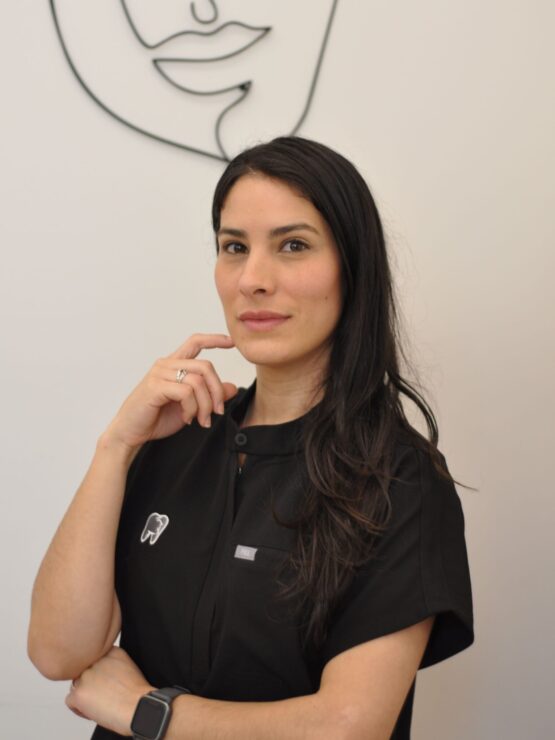Wisdom Teeth Removal, Toorak
CHOOSE TOORAK DENTAL STUDIO
The growth of wisdom teeth can cause annoyance, pain and sensitivity - and often the best treatment is wisdom teeth removal.
As scary as that might sound, the wisdom teeth experts at Toorak Dental Studio are some of Melbourne’s most highly trained in their field. We work within a state-of-the-art environment and provide leading care and exceptional results to our patients, with a stand-out personal service that puts you at ease and keeps your discomfort to a minimum.















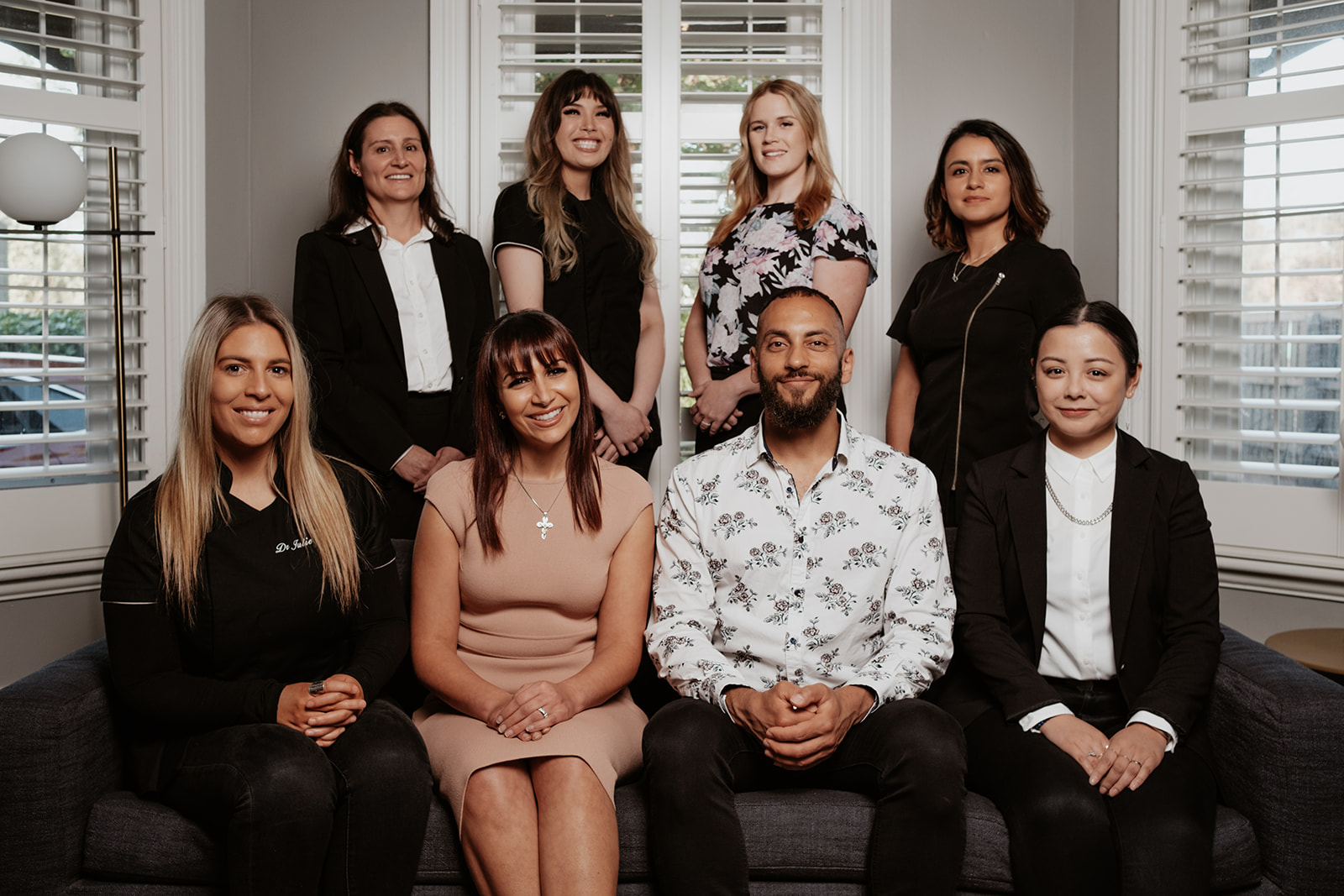
Book an appointment if you’re experiencing tooth pain
If you’re experiencing swollen or bleeding gums, pain in the teeth, gums or jaw, overcrowding, decay or cysts, this could signal that you need to see a wisdom teeth experts. Wisdom teeth need to be removed when they’re impacted, which can lead to other problems around the mouth. Book an appointment at Toorak Dental Studio to find out if you need wisdom teeth removal in our Melbourne clinic.
Maximum care and comfort for our patients
Depending on the individual patient and the type of removal needed, it’s natural to feel some anxiety – especially if you require emergency wisdom teeth removal. Our main focus is on making sure our patients feel comfortable and cared for, so please let us know about your unique requirements and we’ll discuss multiple solutions to ease your anxiety.
State-of-the-art technology
Calm, soothing environment
Family-owned for over 35 years
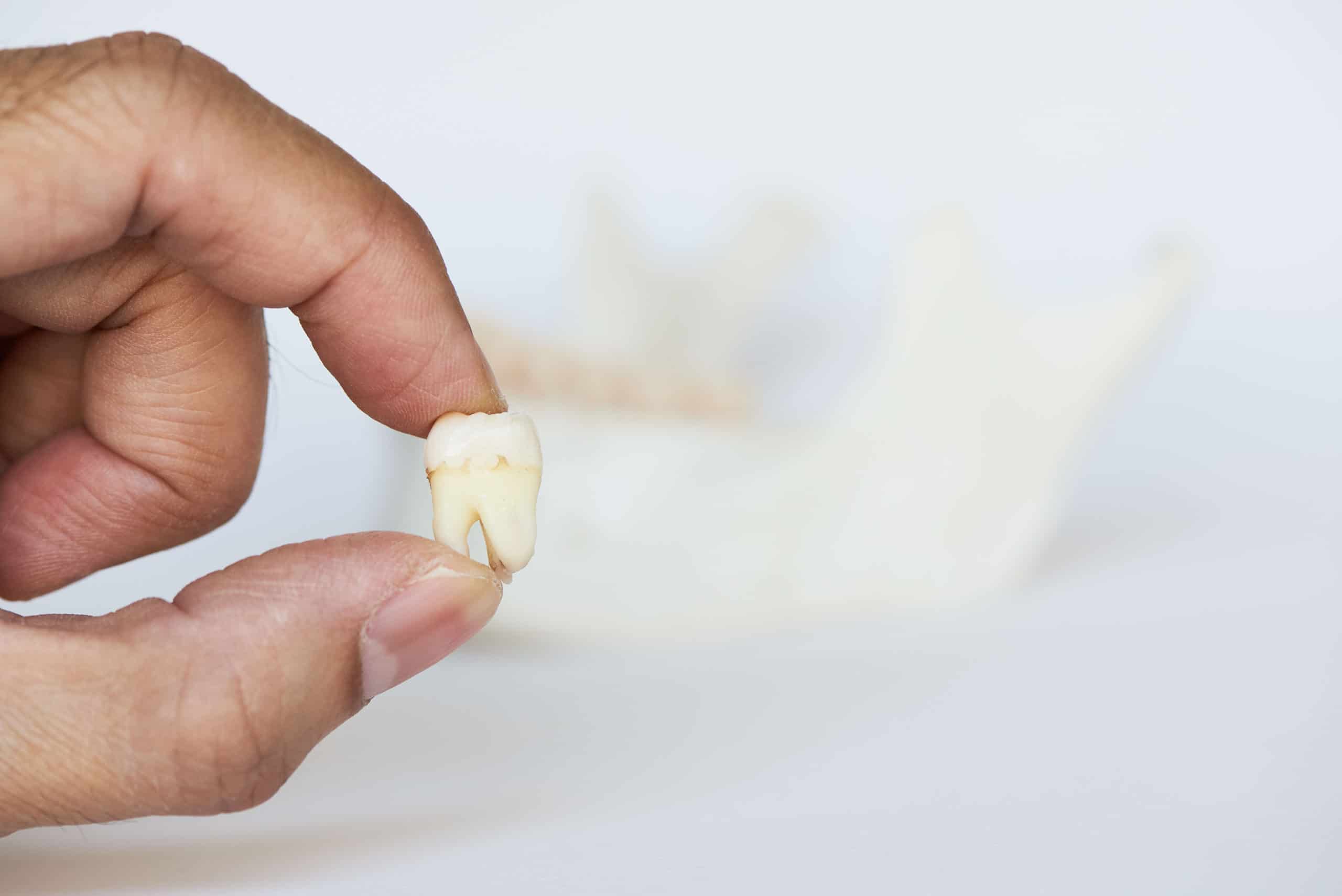
Wisdom Teeth Extraction at Toorak Dental Studio
Your wisdom teeth are the last to erupt within the mouth – and usually show up between the ages of 18 and 23. In most cases, they grow normally with minimal disruption, but sometimes, wisdom teeth removal is the only option. Like all of our general dentistry services, we provide leading care to make your visit as comfortable as possible, ensuring we treat painful teeth and carry out tooth extractions using advanced methods and innovative technology.
NEW TO TOORAK DENTAL STUDIO? DISCOVER OUR IDEOLOGY OF CARE
What are Wisdom Teeth?
Wisdom teeth are third molars that grow at the very back of the gums, are the last teeth to grow in human gums and commonly grow in your late teens and early twenties, though they can cause issues into your late twenties and early thirties.
Due to their late growth, wisdom teeth often cause pain and discomfort when they grow because all other 28 adult teeth are in place. This means there is often not enough room for the new teeth to grow, and thus they can grow at an angle or do not fully emerge through the gums - leading to possible need for emergency treatment.
As a result of the various complications that arise when they grow, wisdom teeth extraction is one of the most common procedures in Australia - but fear not, the wisdom teeth experts at Toorak Dental Studio are some of Melbourne’s highest trained in their field.
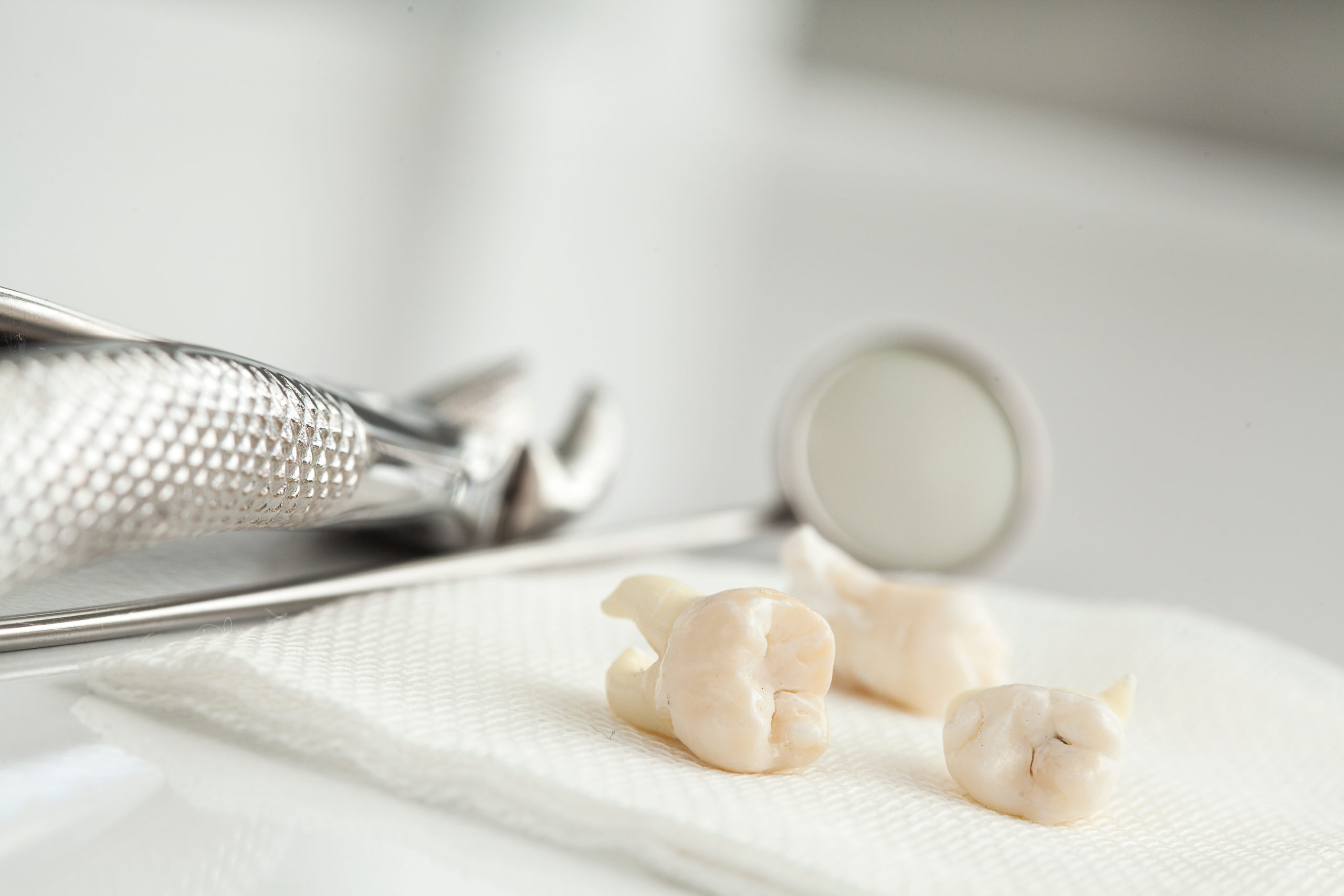
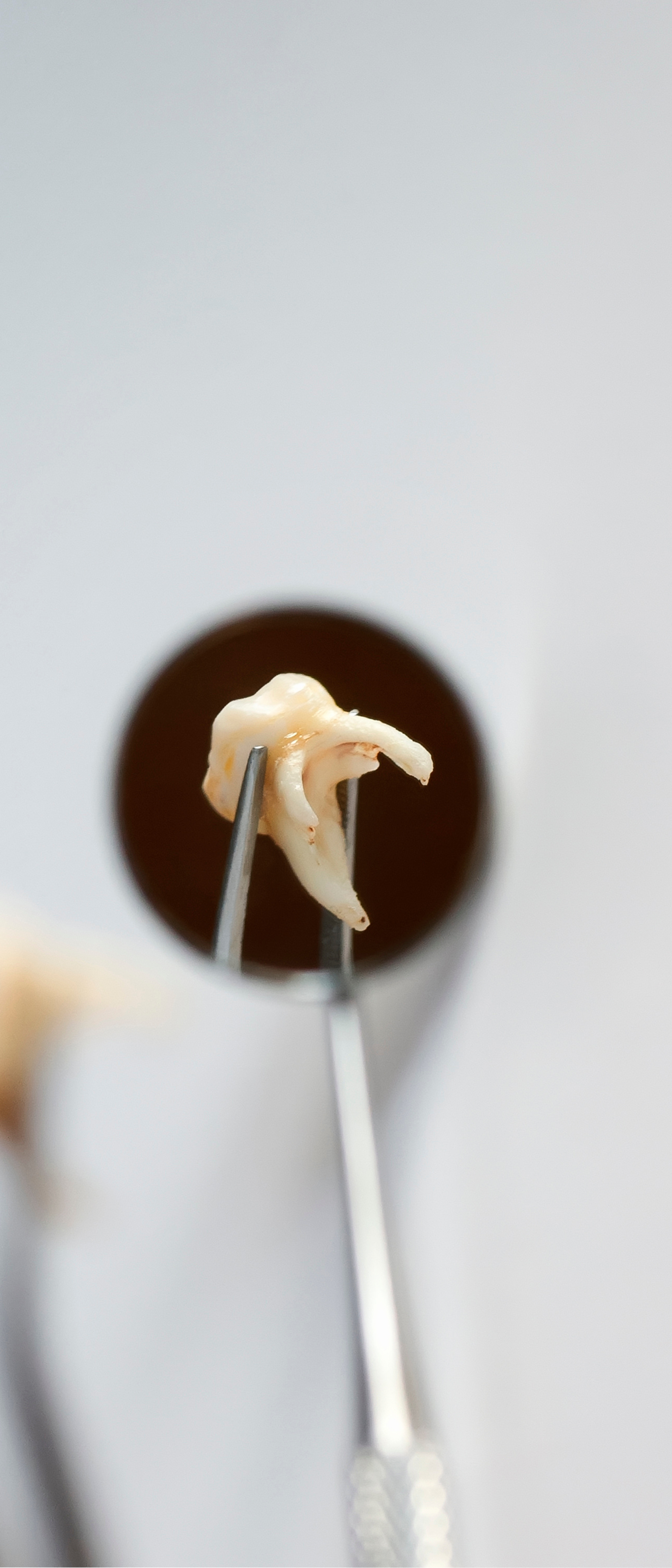
When to get your wisdom teeth out
With a range of possible issues arising when wisdom teeth come through your gums, it’s difficult to know exactly when to seek out a dental experts in order to commit to an extraction.
Thankfully, with our state-of-the-art facilities, we provide excellent care and exceptional results to our patients. Our stand-out personal service and expertise will put you at ease and minimise your discomfort.
Emerge partially through the gums
One such complication of a wisdom tooth coming through is that it only partially emerges through the gums, which can sometimes cause the gum to grow over the emerging tooth or for food and other bacteria to be trapped in the area.
If only part of the crown is visible, it means the tooth is partially impacted. A partially impacted wisdom tooth may then grow at an angle, causing severe discomfort and potential displacing of nearby teeth or growing towards the back of the mouth, either of which can add further complications.
Remain completely hidden within the gums
A wisdom tooth that is fully covered by the gums is known as an impacted wisdom tooth. An impacted wisdom tooth isn’t visible but can cause a range of issues and discomfort, including cavities and infection.
There are various types of wisdom tooth impaction that can cause problems, depending on what angle the wisdom tooth is growing in and whether it is impacted within the gum or whether it has erupted from the jawbone or not.
Sometimes an impacted wisdom tooth can cause no major issues, but if untreated there is a potential risk of tooth decay and gum disease.
Crowd nearby teeth
Another problem that may arise as part of your wisdom teeth grow, which could necessitate a wisdom tooth extraction, is that the growing molars crowd nearby teeth at the back of your mouth.
Tooth crowding could cause significant discomfort and pressure on nearby teeth, creating another range of potential problems such as tooth decay, infection and tooth damage - all of which could be alleviated or avoided if extraction is chosen.
Why Are Wisdom Teeth Removed?
Wisdom teeth removal may be necessary as a result of any of the above problems when the teeth erupt and grow through the gum. There are, however, other ways to relieve pain caused by wisdom teeth than removal.
Wisdom teeth are removed on a case-by-case basis, as each individual will experience levels of discomfort and potential complications - so it’s best to consult a expert to find out the right choice for you.
Damage to other teeth
The teeth around the wisdom teeth in your mouth could experience damage if the larger third molar erupts too close, or grows at an angle toward your existing teeth. This could cause teeth to crack or crowd which would result in significant discomfort - meaning wisdom teeth removal is the right option.
Jaw damage
Wisdom teeth erupt from the jaw before they grow through your gums, which can be a painful process at times even if there are no related issues.
If your jaw isn’t large enough to accommodate your new wisdom teeth, there could be a greater risk of impaction or several other complications, such as cysts or benign tumours growing in your jaw.
Sinus issues
The upper wisdom teeth in particular grow close to the sinuses in your face and neck, which could cause a number of risks. For example, if you have an infection in your wisdom teeth, there’s a possibility it could spread to your sinuses and result in severe discomfort.
Sinus pain, pressure and headaches are all common issues that arise when wisdom teeth are growing - and if these issues become severe and repetitive, removal may be the best course of action.
Inflamed gums
Gums are a sensitive area for any person and can be at risk when wisdom teeth are growing. Impacted wisdom teeth, in particular, can cause tender gums, swelling and even bleeding when brushing or flossing your teeth.
Cavities
Wisdom teeth are more prone to getting cavities, especially if they’re partially impacted. There’s a higher chance of bacteria getting stuck in the tooth area, which can cause tooth decay and eventually, cavities.
Sometimes wisdom teeth removal is the only way to avoid the issues that arise when cavities occur.
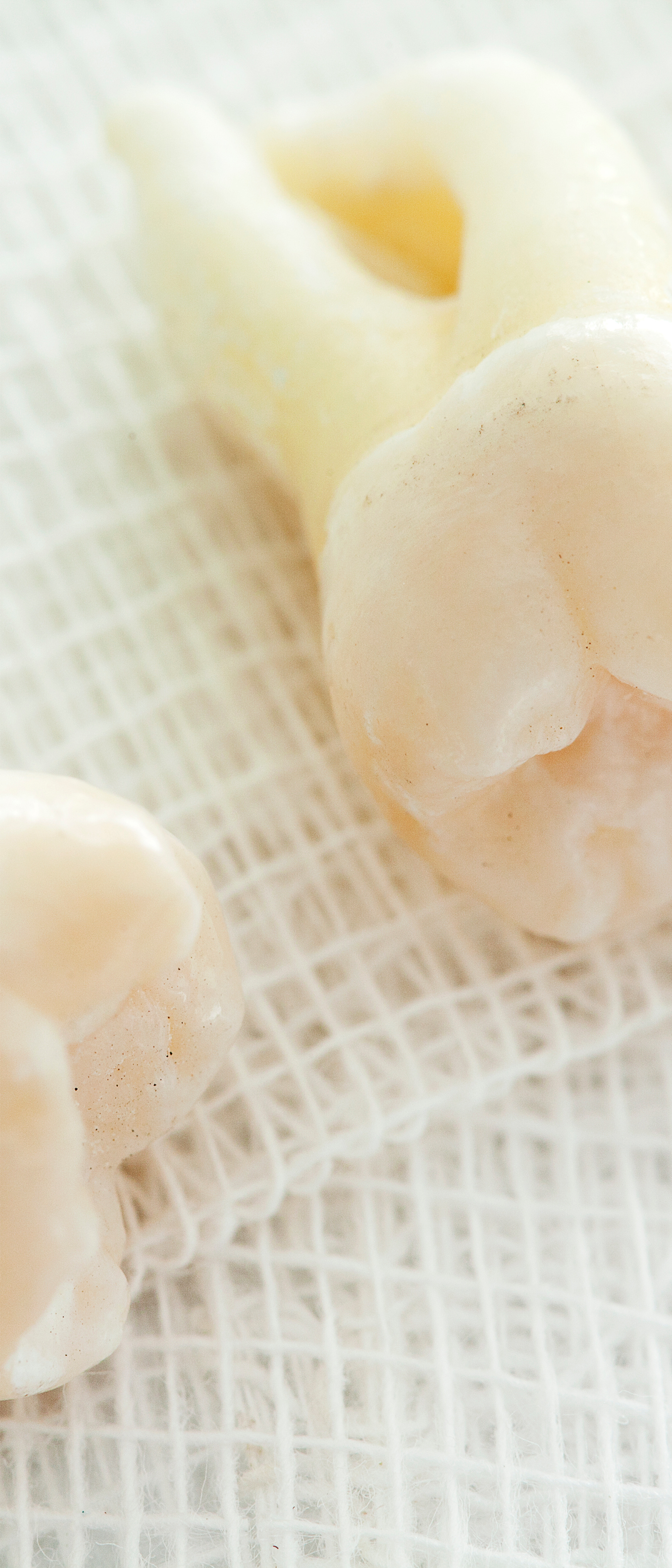

Impacted Wisdom Teeth Removal
Fully or partially impacted wisdom teeth come with their own range of problems and impacted removal, does, too. As a fully impacted wisdom tooth is completely covered by the gum, the procedure to remove it is a little more complicated.
While the procedure doesn’t necessarily cause more pain, an incision in the gum is necessary before proceeding to remove the tooth. Therefore, stitches are routinely used to close the wound after the extraction has taken place, and a slightly longer recovery time may be necessary.
How to Prepare to Remove Wisdom Teeth
Preparing for wisdom teeth removal may seem like a daunting prospect for many, but rest assured you will be in the best possible hands when it comes to our wisdom teeth experts at Toorak Dental Studio.
- Ensure you familiarise yourself with the procedure before attending your appointment, so you know what to expect when you arrive
- Don’t eat or drink after midnight the night before your procedure
- Make sure you’re healthy and hydrated in the days beforehand
- Prepare your ride home from the surgery - this is especially important if you’re undergoing general anaesthetic, as you won’t be able to drive!
- Plan your pain relief - you’ll need to manage your pain and discomfort after the procedure
- Book a few days off work afterwards for recovery
- Ensure you stock up on soft foods - you won’t be able to eat solid food for 3-4 days following surgery
If you have any questions or concerns, don’t hesitate to get in touch with our team and we’ll support you in any way we can.


What does Wisdom Tooth Removal Procedure Involve?
The wisdom teeth removal procedure is one of the most common procedures in Australia and follows quite a straightforward process, although it does depend on the type of anaesthetic used.
The procedure can involve local anaesthetic or general anaesthetic - while local will numb the affected area prior to the extraction, a general anaesthetic will put the patient to sleep while the surgery is completed.
- Either local or general anaesthetic is administered, numbing your mouth or gently putting you to sleep
- If necessary, an incision is made in the gum in order to better access the affected tooth
- Any bone blocking access to the tooth is removed
- If necessary, the wisdom tooth can be broken into two parts for an easier extraction
- Your wisdom tooth is removed
- The site of the removal is cleaned of any remaining tooth or bone
- Stitches applied where needed
- Gauze is placed over the site to stem any bleeding and allowing a blood clot to form
- If under general anaesthetic, you will be taken to a recovery room until you regain consciousness
Wisdom Teeth Removal Surgery
Wisdom teeth removal surgery will follow consultation with one of our wisdom teeth experts, where you can discuss any of your concerns and decide with our experts what kind of anaesthetic would be best for your extraction.
As above, the process is fairly straightforward and the differences will depend on each individual case.


Wisdom Teeth Removal Without Surgery
In certain cases, wisdom teeth removal may be possible without surgery. What this means is that a surgical procedure is not fully necessary, and the wisdom tooth in question could be removed similarly to any regular tooth extraction.
If a wisdom tooth has erupted and is growing in a straight line, without impacting and without causing deeper damage within the gum or jawbone, there is a possibility it can be removed without surgery.
Wisdom Teeth Removal Recovery
Wisdom teeth removal recovery can vary from patient to patient and there may be minor alterations to your recovery depending on the type of extraction and how problematic your wisdom teeth have been.
However, generally the recovery is very similar across the board and it can take up to 2 weeks for a full recovery.
- First 24 hours - blood clots will begin to form in the wound where the wisdom tooth was extracted
- 2-4 days - some swelling may remain but you will see some improvement, and will be able to eat solid foods from day 4 onwards
- 1 week - any stitches (if you’ve had them) may be removed
- 7-10 days - any remaining jaw stiffness and aching should dissipate
- 2 weeks - you should be as good as new with no further aches, stiffness or bruising
Avoiding things like caffeine, dairy, smoking and alcohol could all help aid recovery time and prevent any further issues from arising. If you are unsure on anything, as always you can contact our team and we will always be pleased to help address any concerns or questions you have.

Questions about wisdom teeth removal
The cost of removing wisdom teeth can vary depending on the situation, type of removal required, type of anaesthetic and which specialist you see. On average, a wisdom tooth extraction can cost between $1500-3000 per tooth if done under general anaesthetic, while a simple extraction using local anaesthetic can cost up to $2322 for all four teeth.
Regardless of the kind of wisdom teeth removal procedure you’re having - whether that’s using local or general anaesthetic - you should feel little to no pain due to the area being numbed prior to extraction taking place. Should you feel any pain at all, it’s important to let your dentist know and more anaesthetic can be administered.
All our wisdom tooth specialists at Toorak Dental Studio are highly skilled in their area, and take every possible precaution to put you at ease and make the process as simple and easy as we can.
Wisdom teeth removal is not always painful, though the intensity of the discomfort depends on your individual threshold and the type of surgery that’s required. You may be able to opt for wisdom teeth removal under general anaesthetic, local anaesthetic or even sedation.
Speak to your dentist at Toorak Dental Studio to discuss your options and rest assured we’ll take every precaution to minimise pain and make the treatment as comfortable as possible.
Wisdom tooth removal can take anything from a couple of minutes up to an hour, depending on how complicated your tooth is and the choice of anaesthetic that is used. The more difficult, impacted or awkward a tooth is when growing through will determine the length of time it takes to extract.
Many adults in Australia will need their wisdom teeth removed at some point in their life, but this procedure is not covered by Medicare. Some expenses may be covered if you have dental extras as prt of your private health insurance, but generally people have to pay for wisdom teeth removal in Melbourne and across Australia.
At Toorak Dental Studio, we offer flexible, DentiCare interest-free payment plans to help cover the cost of your leading-quality dental care.
Many adults in Australia will need their wisdom teeth removed at some point in their life, but this procedure is not covered by Medicare. Some expenses may be covered if you have dental extras as part of your private health insurance, but generally people have to pay for wisdom teeth removal in Melbourne and across Australia.
At Toorak Dental Studio, we offer flexible, interest-free payment plans such as DentiCare to help cover the cost of your leading-quality dental care.
While not everyone will get wisdom teeth, most adults will have four that erupt in their late teens to early twenties - one in each corner of their mouth. Since most adults have 28 other teeth by this point, there’s often little space left for the wisdom teeth to grow.
This can cause them to emerge at an angle or only partially emerge; this is referred to as “impacted wisdom teeth”.
After a wisdom tooth extraction, you won’t be able to eat solid foods for 3-4 days, so you’ll need to stay prepared for your recovery. Soft foods like mashed potatoes, scrambled eggs and soups and broths are the way to go until you’ve recovered sufficiently.
In most cases, having your wisdom teeth removed will not affect the look or shape of your face. These new teeth grow in the far back parts of your mouth, and the soft tissue structures around this area remain unchanged in the majority of cases.
Some patients may find that their face or jawline looks slimmer following extraction, though this could be down to swelling that occurred during the emergence of the teeth, which subsides following the removal.
Smoking is not advised following wisdom teeth removal, as it can inflame the affected area and worsen any pain or discomfort where you’ve had the procedure. Smoking can also slow the healing process and cause unnecessary complications.
Upfront Treatment Plans
We build tailored treatment plans for optimal outcomes.Interest-free Payment Solutions
Interest-free, flexible payment plans such as DentiCare are available.Same-day appointments
Appointments are available for urgent dental work.CONTACT US
Request a complimentary wisdom teeth removal consultation
Fill out the form below and we will contact you during our working hours.
If you have a dental emergency, please call 9804 7710. Urgent care is provided usually the same day.











